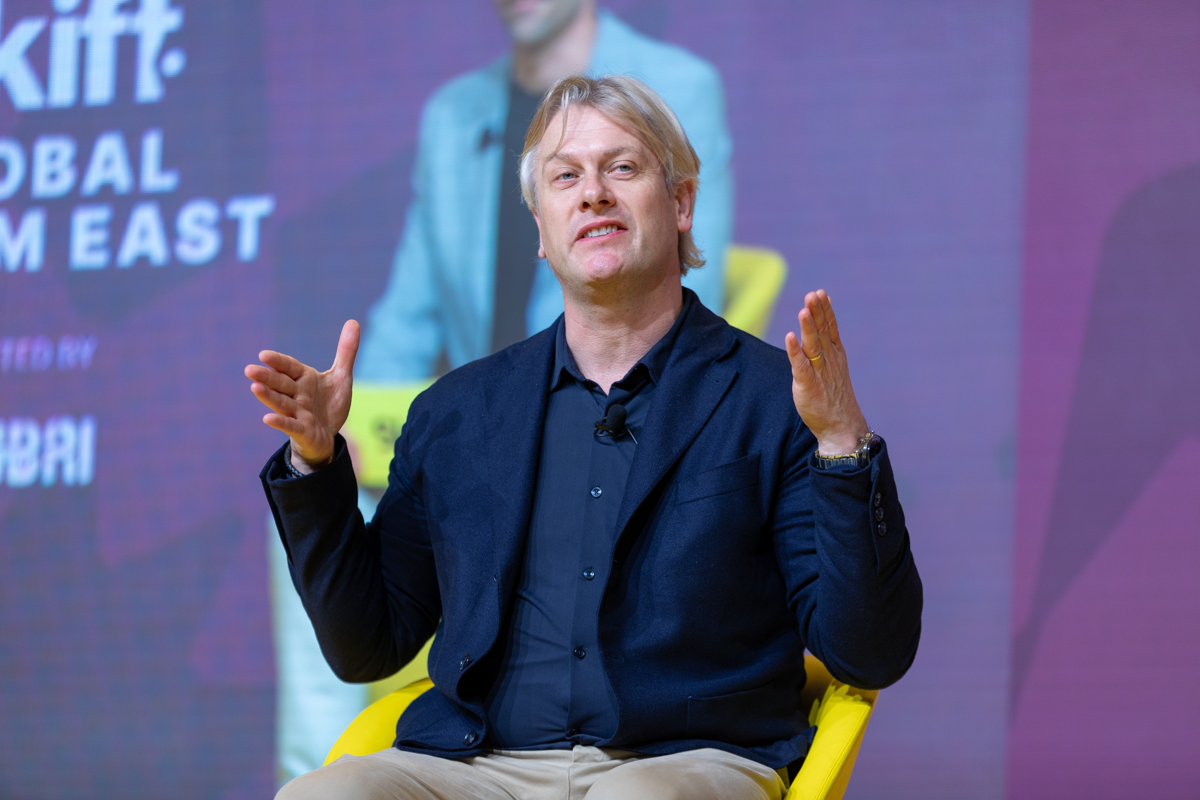Why the Need for Play Is Reshaping the Travel Industry

Skift Take
This sponsored content was created in collaboration with a Skift partner.
The travel industry has come to accept that experiences are a key driver of modern traveler behavior. While travelers once chose their destinations first and then researched what they might do there, now they’re more likely to choose an exciting thing to do and build a trip around that activity. In a 2024 survey by Skift and Qiddiya City, 72 percent of travelers said entertainment, sports, and cultural experiences have become more important to them over the last five years. Experiences also inspire higher spend: Two-thirds of travelers are willing to pay more for experience-driven trips.
In light of these evolving consumer preferences — which are even more pronounced among Millennials and Gen Z travelers — it’s important for any destination looking to differentiate itself to have a focused philosophy or promise. That’s why Qiddiya City has translated the broader experience tourism trend into a single-minded philosophy: play. The city’s robust activities offering is built around those three pillars of playful experiences: entertainment, sports, and culture.
“We believe in the power of play,” said Ross McAuley, MD advisor and director general of Play Qiddiya City DMMO. “Play is a natural human instinct, as natural as walking or breathing. Play is not just about fun, we play to compete. We play to learn and solve problems. We play to connect with other people. It’s a very important part of the human condition.”
At Skift Global Forum East in Dubai this November, McAuley joined SkiftX Research Editor Dan Marcec for a fireside chat about how this concept of play is pushing the travel industry, destination managers, and experience providers to new frontiers of cultural authenticity.
Delighting Local Communities and Destination Visitors with Seamless Experiences
Experiences are the layer that brings destination cities like Qiddiya City to life. “We need to give ourselves permission to think more innovatively,” McAuley said. “Amazing theme parks, water parks, performing arts centers, a football stadium — these are just the hardware. The focus on events, music, and sports is key for us. And integrating with hotel bookings, DMC support, and airlines, is a new model that we’re interested in exploring.”
According to McAuley, this model supports destinations in a transition from transactional partnerships to experiential ones. Instead of squeezing the most out of their margins, destinations must prioritize providing more seamless experiences for potential visitors from start to finish. Of course, the goal will always be to increase bookings, drive revenue, and unlock higher margins. But the road to achieving those results is undergoing major changes.
For example, Almosafer, the Middle East’s largest online travel agency (OTA), recently launched Almosafer Activities. Partnering with Klook, a reservation platform for activities and experiences, allowed Almosafer to highlight events as a critical part of trip planning. Going beyond the traditional booking process in this way offers a seamless experience for any potential traveler to the region. And reducing the friction and noise of the market, with countless competing channels to navigate, benefits both travelers and travel brands alike.
Qiddiya City’s vision of play also counteracts some of the prevailing myths about giga-projects in Saudi Arabia. For example, destination philosophies must consider local communities as part of their efforts to attract tourists. In that vein, Qiddiya City aims to ensure that activities and events are priced to make the city accessible to all, welcoming the local Saudi population to join in the play. And while many assume that giga-projects are all in remote locations, being 40 minutes from Riyadh puts Qiddiya City within reach of a population of 7 million people, not to mention established infrastructure and government support.
Authentic Cultural Tourism That Transcends Stereotypes
The concept of authenticity has become a travel industry buzzword that’s hard to pin down. In the search for authentic experiences, destinations and tourism providers often double down on recognizable tropes that might draw in crowds. But today, social media has made the world feel smaller than ever before. Travelers in search of authentic experiences want to live like locals, not dress up as characters.
McAuley referenced Nashville’s success as an example of this kind of lived authenticity. By leaning on the city’s existing culture, from music and sports to restaurants and bars, Nashville has made a name for itself on the global stage. “15 years ago, it wasn’t really on the map as a travel destination,” McAuley said. “Now they host the NFL draft.” In that sense, Nashville is a powerful demonstration of how DMOs can work with the broader travel ecosystem to differentiate their offering and deliver commercial gain for all parties.
“In the Middle East, we often confuse heritage with authenticity,” McAuley said. “We think authentic experiences have to be traditional [and reflect historical heritage]. That’s relevant, but it has become stereotypical. Today, 65 percent of the Saudi population is under the age of 30. There’s a phenomenal youth culture — the largest dance music festival, entrepreneurs, food and drink, music, the arts, creative industries.”
For Qiddiya City, providing visitors with an authentic experience means giving them the opportunity to play like local Saudis. That might include a desert excursion, but it also means hanging out with locals who live and work in nearby cities. It means getting a taste of what everyday life is really like in one of the most exciting and rapidly developing parts of the world. “Can you attend a sporting event that locals go to, so you really feel what it's like to be in that society?” McAuley asked. “For me, that’s the next stage of authenticity in the Middle East.”
For extensive research and deeper insights into the power of play and its impact on the future of global tourism, sign up to receive a new report from Skift and Qiddiya City, which will be published in December 2024. Those who provide their information will receive a FREE download that will be sent automatically when the report goes live.
This content was created collaboratively by Qiddiya City and Skift’s branded content studio, SkiftX.





